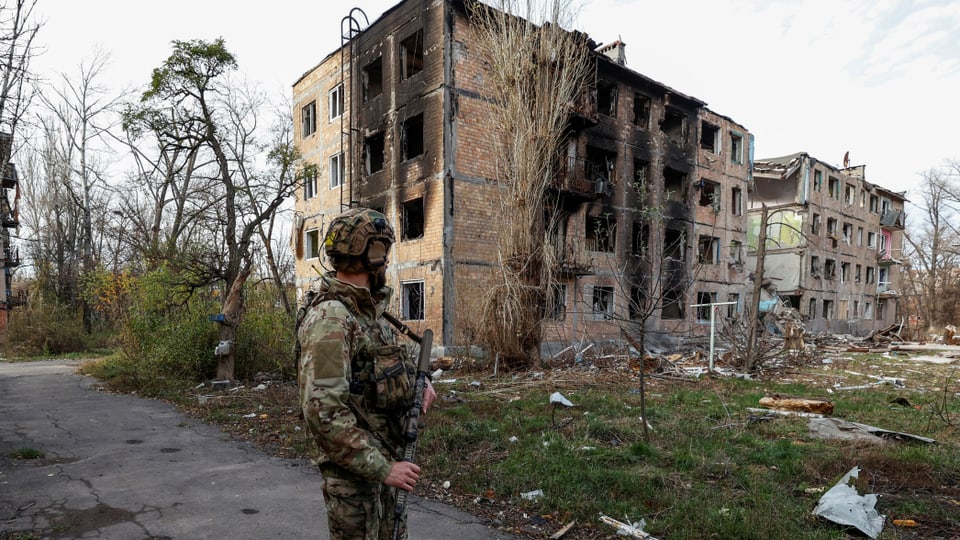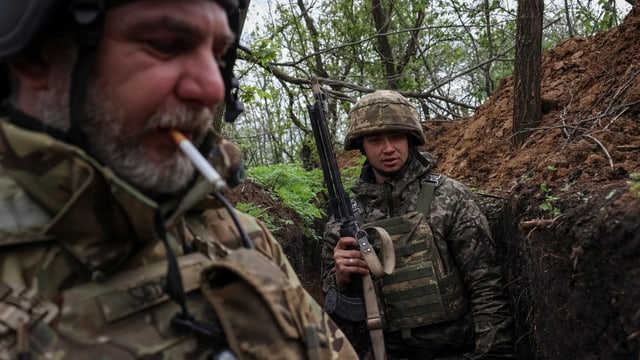Military aid for Ukraine is stalling: the EU will hardly be able to keep its promise to deliver one million pieces of artillery ammunition by next spring, and in the USA a multi-billion package of war equipment is blocked in Congress. For the Austrian historian and military expert Markus Reisner, these are bad prospects for Kiev.
SRF News: Why is the EU not delivering the promised artillery ammunition?
Markus Reisner: The European defense industry was not prepared for such a conflict and could not react accordingly. And despite almost two years of war, the situation has not changed. Europe has not switched to a kind of war economy in order to be able to produce large quantities of ammunition.
In the USA, a $60 billion package for Ukraine is stuck in Congress. What military goods are involved?
This mainly includes ammunition – artillery or anti-aircraft defense – as well as other anti-aircraft systems. These are urgently needed to prevent the Russians’ expected attacks on Ukrainian infrastructure.
The population is coming under greater pressure as winter approaches.
Without the US arms package, it will be difficult for Ukraine to protect its depth, especially the military-industrial complex of weapons and ammunition production facilities. In addition, with winter approaching, the population is coming under even greater pressure because more successful Russian attacks on critical infrastructure such as the power supply must be expected.
What about weapons and ammunition on the Russian side?
Russia certainly made many and huge mistakes at the beginning of the war – but it has since adapted in many areas. Last year the Russians fired around ten million artillery shells and it is assumed that they produce around two million a year. There are also deliveries from North Korea and the construction of a new drone factory in Russia. Corresponding supplies would be needed from the West so that Ukraine could counter this.

Legend:
Ukraine relies on supplies of ammunition and weapons from the West.
Reuters/Serhii Nuzhenko
Ukrainian General Valery Salushni recently spoke of a stalemate on the front, but President Zelensky immediately contradicted this statement. How do you assess the situation at the front?
General Salushni was honest and expressed the maximum he could and was allowed to do as commander of the Ukrainian Armed Forces. He put his finger in the open wound: the war is once again in a stalemate – like last summer.
A trench war is decided primarily by resources.
Ukraine was always good when it acted flexibly in operational control. But if the Russians managed to force them into a stationary operational command, the Russians would have exploited their advantages. They did this primarily with their artillery. Such trench warfare is fundamentally decided primarily by resources.
How do you think the war will continue?
It can be assumed that the Ukrainian offensive has come to a standstill and the targeted breakthrough to the Sea of Azov has not been achieved. Ukraine must now consolidate over the winter and protect the depth of the country. They also have to try to set up new associations so that they can go on the offensive again next year. Ultimately, the goal is still to recapture all Russian-occupied territories – including Crimea.
Matthias Küng conducted the interview.

